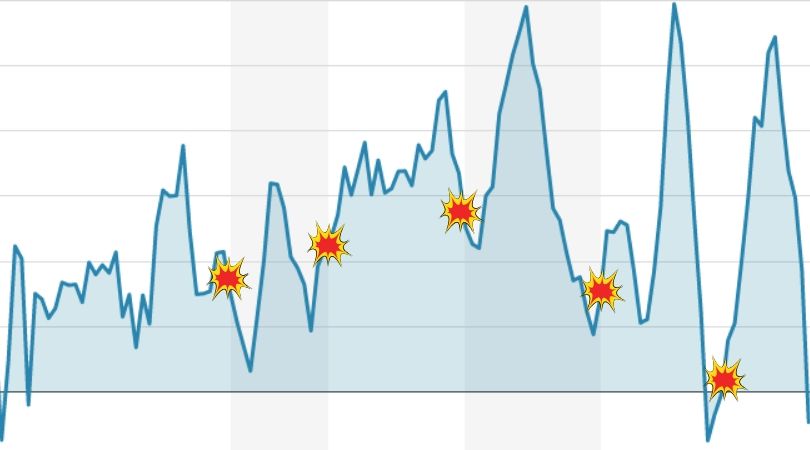A few months ago, Santander analyst Luciano Sobral (@drunkeynesian on Twitter) published a chart showing the evolution of Brazil’s GDP over time, alongside significant ruptures of the political order. One thing stood out: political shifts, whether democratic or not, come after dire recessions.
*Disclaimer: We consider Lula’s 2002 election to be a “rupture” – even if one of the democratic kind. Lula is, after all, the only person ever to be elected president of Brazil after being born into poverty. His program was more to the left than his predecessors’, which marked a significant shift in Brazilian politics.
Recessions v. political shifts: cause or correlation?
We’ve decided to ask historians and political scientists to analyze the image above and tell us how much the economy alone explains political shifts in Brazil. Here are the main takes:
Mauricio Santoro (State University of Rio de Janeiro)
“Political shifts in Brazil do have a cause-effect relationship with the economy. When the economy is doing well, governments are able to overcome crises. That’s what happened with Lula in 2005,...


 Search
Search






































